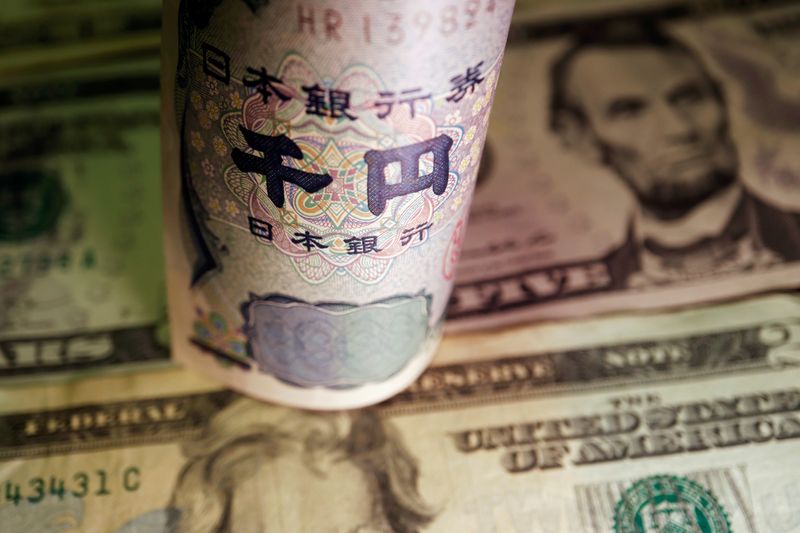
By Patturaja Murugaboopathy and Gaurav Dogra
(Reuters) – Asia’s foreign reserves have dropped this year as central banks have intervened to support their currencies, with Japan, Indonesia and South Korea leading the declines.
Foreign reserves across 12 countries, from Japan to India, fell about $50 billion to $7.5 trillion by the end of June. They had risen 2.2% in the same period last year.
Foreign investor flows into Asian bonds dropped 34% in the first half of this year from a year ago, data from exchanges and bond market associations showed.
Although the decline in reserves is not severe enough to trigger a financial crisis or cause countries to struggle with their import payments, given that most have healthier balance sheets and controlled external liabilities, analysts note that it could still affect investor sentiment and may lead to portfolio outflows.
The import-cover ratios, which indicate the number of months a country can sustain imports if all other inflows cease, have increased for India, South Korea, and China this year. However, these ratios have declined for countries such as Malaysia, Indonesia, and Thailand, according to calculations by Reuters.
Asian currencies have fallen sharply in the first half of the year as the Federal Reserve’s hawkishness and high yields buoyed the dollar. The yen has been the biggest regional loser, with about 11% drop against the dollar, which prompted several rounds of suspected interventions by its central bank to support the currency this year.
Meanwhile, Indonesia’s central bank also raised its interest rates in April, to curb the rupiah’s currency slide and prevent capital outflows.
With major events such as U.S. elections and potential shifts in the Federal Reserve’s monetary policy coming up this year, regional currencies are expected to experience heightened volatility in the second half.
“When the U.S. Fed starts cutting rates eventually, potentially causing temporary depreciation in the dollar, the credibility of Asian central banks will be tested,” said Saurav Sen, senior analyst at Gimme Credit.

“Countries that have the ability to increase reserves at that time to keep their currencies competitive vs. the dollar will be able to manage volatility. Countries like China and India come to mind,” Sen said.
Bucking the trend, India’s foreign reserves rose 4.9% to $653.71 billion in the first half of the year.
This post is originally published on INVESTING.




